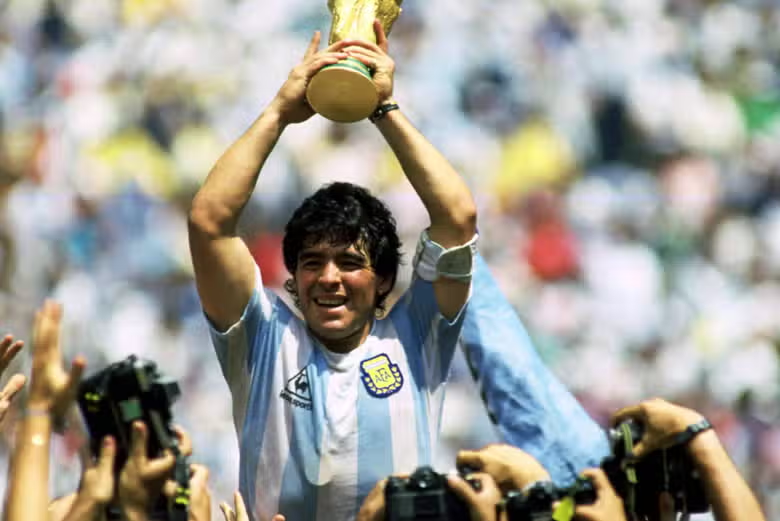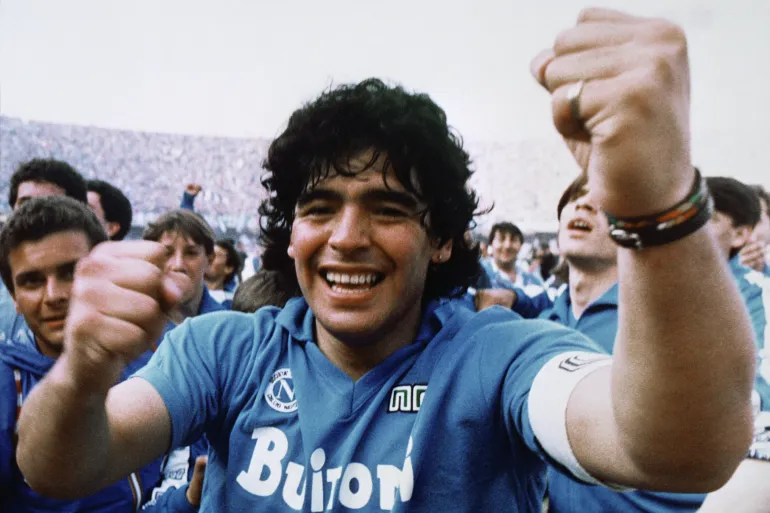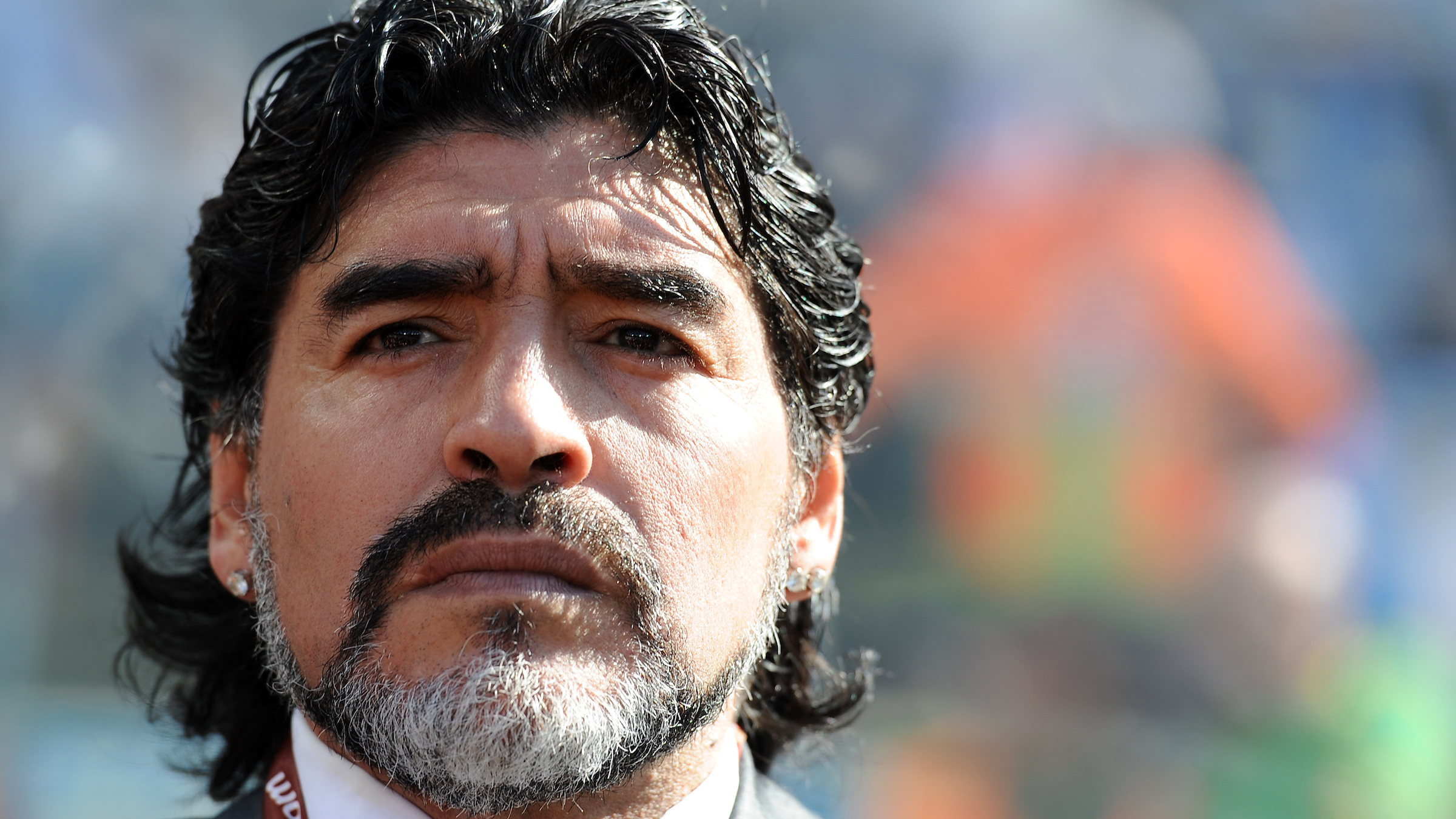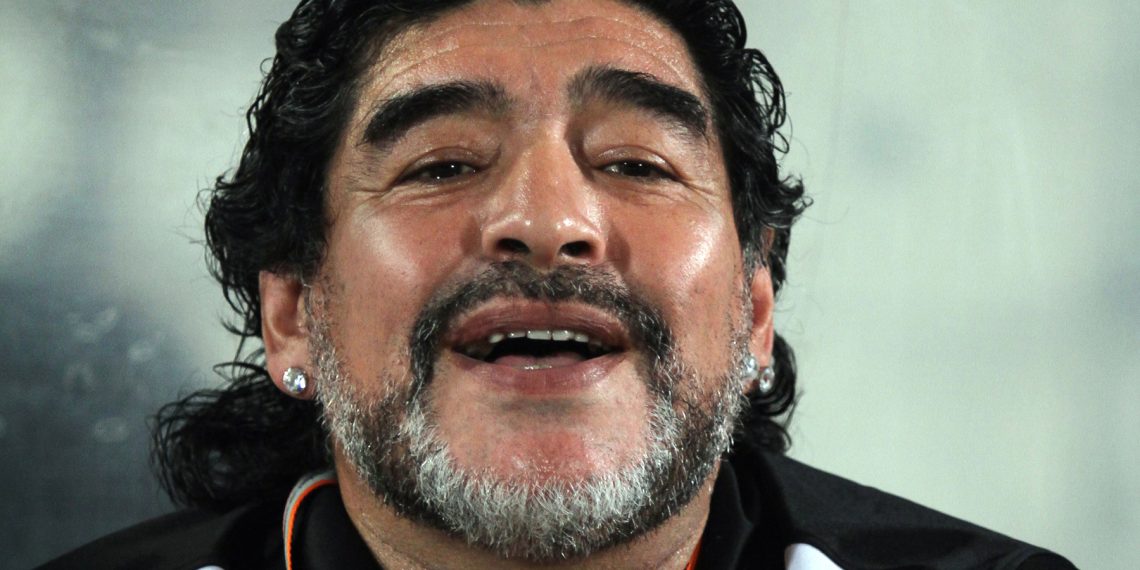Diego Maradona, an iconic figure in soccer, had a net worth of $500,000 when he passed away on November 25, 2020, at the age of 60. Despite being one of the greatest football players ever, his wealth had been significantly impacted by personal struggles, including addiction, legal battles, and financial mismanagement.
During his career, Maradona earned tens of millions of dollars from both his playing contracts and endorsement deals. In the 1980s, he was among the highest-paid athletes globally, securing lucrative deals with brands like Hublot, Puma, and Coca-Cola. However, his financial situation deteriorated in his later years, which we explore in this Feature.
Maradona is widely regarded as one of the greatest soccer players of all time. His mesmerizing dribbling, brilliant playmaking skills, and knack for scoring goals made him a global sensation. The peak of his career came when he led Argentina to victory in the 1986 World Cup, cementing his place in football history.
Despite his on-field brilliance, Maradona’s personal life was marked by controversy. He struggled with addiction, health problems, and financial troubles. These issues, coupled with the pressures of fame, affected both his professional and personal life. After retiring from football, Maradona pursued a managerial career, but his struggles continued to shape his legacy.

Career Earnings
Between 1984 and 1991, Maradona earned an impressive $43 million in salary. Adjusted for inflation, this figure would be equivalent to around $100 million in today’s dollars. These earnings came from his time at top clubs like Barcelona, Napoli, and Boca Juniors, as well as endorsements with global brands.
Maradona’s contract with Napoli, where he enjoyed immense success, was among the most lucrative in football. He helped lead the team to their first-ever Serie A titles and became a beloved figure in the city of Naples. His time in Italy, however, was also marred by personal issues, including his addiction to cocaine, which would later affect his playing career.
Financial Struggles
Maradona faced significant financial difficulties later in life, stemming from a longstanding tax dispute with Italian authorities. The issue dated back to his time playing for Napoli, where unpaid taxes accumulated over the years. In 2009, Italian authorities revealed that Maradona owed 37 million Euros in taxes, including 23 million Euros in interest.
As part of the settlement process, police seized some of his jewelry to pay off a portion of the debt, which amounted to 42,000 Euros. However, most of the debt remained unresolved, and Maradona publicly stated that he had no intention of paying it off. This stance led to accusations of defamation against him.
Early Life
Diego Armando Maradona was born on October 30, 1960, in Villa Fiorito, a shantytown on the outskirts of Buenos Aires, Argentina. Growing up in poverty, Maradona was the fifth of eight children in his family. His early life was challenging, but his talent in football was soon noticed by a local talent scout, which led to his first break in the sport.
At just 15 years old, Maradona made his professional debut for Argentinos Juniors, becoming the primary breadwinner for his family. His rise to stardom was swift, and by 1981, he was signed by Boca Juniors, one of Argentina’s top clubs. His success in Argentina soon caught the eye of European clubs, leading to his high-profile move to Barcelona in 1982.

Career: From Barcelona to Napoli
Maradona’s move to Barcelona in 1982 came with a record-breaking transfer fee of $7.6 million. The anticipation around his arrival was immense, but his time at the Catalan club was marked by both brilliance and controversy. While he was adored by the fans, his time at Barcelona was disrupted by a series of incidents, including a notorious brawl with Athletic Bilbao players that led to a riot.
In 1984, Maradona was transferred to Napoli for a world-record fee of $10.5 million, where he would reach the peak of his career. At Napoli, Maradona led the club to two Serie A titles and a UEFA Cup victory, elevating them to their golden era. During this period, he also helped Argentina secure the 1986 World Cup, scoring memorable goals, including the infamous “Hand of God” goal against England.
Addiction Struggles
Maradona’s addiction to cocaine became one of the defining aspects of his life, and it started to take hold during his time at Napoli in the mid-1980s. His dependency on the drug severely impacted his physical fitness and football performance. Maradona’s relationship with the mafia in Naples, who allegedly provided him with drugs and women, further complicated his situation.
In 1991, Maradona tested positive for cocaine, leading to his departure from Napoli. His struggles with addiction continued throughout the 1990s. At the 1994 World Cup, he tested positive for ephedrine and was banned from the tournament. His addiction issues were a key factor in the decline of his career.

Legal Issues
Maradona’s legal troubles were a significant part of his life, particularly in the 1990s. One of the most notorious incidents occurred in 1991 when he was recorded on the phone arranging a meeting with prostitutes. The Italian authorities were monitoring the line and subsequently charged Maradona with drug possession and distribution. His attempt to flee to Argentina was unsuccessful, and he was eventually brought back to Italy.
In 1994, Maradona made headlines again during the World Cup, this time for opening fire on journalists with a pellet gun. Several reporters were injured, and Maradona’s behavior during the tournament led to his expulsion after failing a drug test. He was later sentenced to a suspended prison term for his offenses.
Legacy
Diego Maradona’s life was a blend of extraordinary talent, fame, and controversy. His skill on the football field made him a global icon, but his personal struggles often overshadowed his professional achievements. Despite these challenges, Maradona remains one of the most beloved figures in football history, particularly in Argentina, where his contribution to the 1986 World Cup win is etched in national memory.
Although his career was filled with ups and downs, Maradona’s impact on the sport is undeniable. His legacy is a reminder of the thin line between greatness and personal destruction, and his story continues to resonate with fans around the world.




